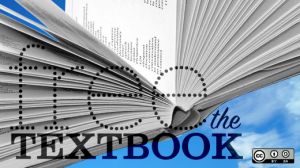Warning: Undefined array key "ssba_bar_buttons" in /home/robinder/public_html/wp-content/plugins/simple-share-buttons-adder/php/class-buttons.php on line 598
Warning: Undefined array key "ssba_bar_buttons" in /home/robinder/public_html/wp-content/plugins/simple-share-buttons-adder/php/class-buttons.php on line 598
Warning: Undefined array key "ssba_bar_buttons" in /home/robinder/public_html/wp-content/plugins/simple-share-buttons-adder/php/class-buttons.php on line 598
Warning: Undefined array key "ssba_bar_buttons" in /home/robinder/public_html/wp-content/plugins/simple-share-buttons-adder/php/class-buttons.php on line 598
Warning: Undefined array key "ssba_bar_buttons" in /home/robinder/public_html/wp-content/plugins/simple-share-buttons-adder/php/class-buttons.php on line 598
Warning: Undefined array key "ssba_bar_buttons" in /home/robinder/public_html/wp-content/plugins/simple-share-buttons-adder/php/class-buttons.php on line 598
Warning: Undefined array key "ssba_bar_buttons" in /home/robinder/public_html/wp-content/plugins/simple-share-buttons-adder/php/class-buttons.php on line 598
I am writing this from OpenEd15 in Vancouver. And this is a call to my like-minded compatriots spread across our conference rooms here, but also to the tweeps and digitalactivists I’ve worked with online over the last two years. After three days of sessions focused on reducing textbook costs, creating all-OER degree programs, generating data analytics for OER, and producing open textbooks in just four days, I am ready for some good, old-school mutiny. It’s a loving and grateful mutiny, since this conference energizes, inspires, and provokes me. But nonetheless, I’m ready to fling some ideas overboard and see this ship steer in a new direction.
Don’t get me wrong. I am here in Vancouver because I am deeply committed to reducing textbook costs. Wait. Scratch that. I don’t actually care about textbook costs. I care about access, broadly conceived: access to ideas, access to pathways to contribute to knowledge, access to research so that we can collaborate and build. Fundamentally, I don’t want to be part of a movement that is focused on replacing static, over-priced textbooks with static, free textbooks. Textbooks, if we don’t re-theorize them, have generally (just) been repositories for the master’s ideas. Students absorb textbook content and achieve “mastery.” (Call it “competency,” whatever.) Making textbooks more affordable is not high on my list of things to do. Here’s what I want OpenEd to help me figure out how to do instead of lowering textbook costs:
- Engage learners in contributing to their learning materials so that knowledge becomes a community endeavor rather than a commodity that needs to be made accessible. To that end, let’s stop fetishizing the textbook, which is at best a low-bar pedagogical tool for transmitting information. OER is better than that.
- Make open licenses the focus of our advocacy for learners, teachers, scholars, which means explaining how the open license enables us to do more with the ideas that we ourselves as learners, teachers, scholars are generating. It’s not the open textbook, it’s the open license that matters here.
- Consider public funding models for open education (OER, open pedagogy, open access). “Philanthropy” is the wrong word for a model in which the public pays itself for what it needs and can generate on its own. And I am not buying that private, for-profit companies– while capable of being good community partners– are the only way we can build a public infrastructure for publishing and organizing and economically supporting open work.
- Build a better mission statement for why we work in the open. I took a stab here, but it was just one tiny specific start. I need help explaining this why. We need the why before we can develop the what (who cares about our open tools and apps and platforms? that’s the easy stuff, so let’s do it second). We need the why before we can assess whether or not we achieved success. Will working in the open serve a social justice vision? improve retention and enrollment? increase interdisciplinary collaboration and improve the quality of our scholarship? Yes? Why? How? And what will it look like if our vision succeeds?
I don’t think that advocating for a pedagogical approach to OER makes me radical or an outlier. But my sense is that the movement is cohering around the “gateway” of open textbook adoption. But don’t worry, I am told, once we hook ’em, we can slip in the pedagogy!
No. No!
That hook is going to puncture our foundational beliefs about the power of open.
I am calling for a (radical?) pedagogy caucus, a core, self-identified group committed to placing pedagogy at the center of the OpenEd movement. I am going to stop apologizing for my sense that textbooks are the wrong way to pitch open.
Open doesn’t need a pitch because open is not for sale.











I’ll sign up for that. I keep struggling with this as well despite my affection for the people and respect for their efforts.
(sorry for self-linking but maybe better than writing a huge comment).
I work with textbooks every day to support the curriculum at my university…and I agree with you 100%. To me, open is an opportunity to transform education. It is a way that we can extend the toolbox for instruction and move from the control of outside influences in the classroom. I challenge this community to put me out of business (or at least cause me to concentrate my efforts differently to support you). I certainly support making the conversation about the work of art and not about the tools that make it.
maybe someday, you and your commentators above will see the world the way I see it, which is that all of you have deep contempt for the project of education.
it is destructive to insist that educators are not there to do their jobs or to be experts.
“Engage learners in contributing to their learning materials so that knowledge becomes a community endeavor rather than a commodity that needs to be made accessible. To that end, let’s stop fetishizing the textbook, which is at best a low-bar pedagogical tool for transmitting information.”
No. sorry, but no. Our job is to teach students things. That is what students *want.* I routinely give my students the choice of whether to have “student-centric” classes or ones where I direct things. While I want my classes to be about the exchange of ideas–I teach in a field where that is appropriate–the students want and need me to be an authority.
Running away from that authority is destructive. Pretending it doesn’t exist is cutting the feet of higher education out from under itself.
My students don’t want their organic chem professor, or their abnormal psych professor, or their medieval history professor, to have the core of their knowledge be a “community endeavor.” They want the professor to locate materials that he/she uses their earned expertise to consider authoritative, and to explain why and where they find flaws in it. That is our job. Your post, and so many others like it by so many others, embrace everything BUT the core mission of higher education, and continually disparage those of us who are engaged in it, and shortchange our students in the name of “innovation.”
I am sorry you feel that way “maybe”. I admit I came to Robin’s post already a believer in her perspective. But I have also NOT used a textbook in my teaching since 2008 (my first year teaching where i was required to).
I honestly don’t understand how, in this age of so much freely accessible “information” (and access to experts in some cases via social media) we can continue to believe our role as higher ed educators is to impart knowledge.
Sure my students are uncomfortable at first. But by the end of my classes they have gained digital literacy to find stuff for themselves and find people to answer their questions. They know how to learn when I am no longer there. The goal of education is for the educator to become less and less needed for learners to learn.
There is a lot more wrong with textbooks than just that. But I was responding to the innovation accusation. Innovation for its own sake is ridiculous. The ideas in Robin’s post go so much deeper.
I’m really not sure how you came to those conclusions and conjured up this ire over Robin’s post, Dave. Where is she implicating that educators are not there to do the thing they are hired for and trusted to do?
She simply wants a group that considers the more progressive end of open education to form and to challenge our usual ways of thinking – challenge, not obliterate, not deride, not force into obsolescence.
Obviously faculty as subject matter experts are important, and their presence and support are unparalleled by anything else the for-profits have to offer. That’s not on the table. What is on the table is our methods, and trying to figure out if we can do our thing better. It’s professional development, whether it fails or thrives. What is an academic position if it doesn’t involve lifelong learning on our side as well as with our own students?
Oh, lol, I read “maybe” as “Dave.” *facepalm*
I completely agree! I wrote an open textbook for my students, not because I’m a “master”, but because I wanted to customize my content, and going with an open license gave me the most freedom. It also allowed me to lower the cost of attendance for my students. Win-win.
From the many sessions about open textbooks at the conference, and the assertion that “everyone understands” it comes a supposition that a textbook is a certainty, a given, that its presence is rarely questioned. That a class cannot exist w/o one.
Like Maha, my teaching has been based on the internet being a textbook, yes some might say because it overlaps with the subjects I teach. I do not begrudge anyone using one, the presence or lack of a textbook is not sufficient to judge the way a course is taught.
The question though remains; if a course in the woods exists without any textbook, does it make a sound?
Robin,
Thanks for starting this conversation and enabling a greater discourse about open and pedagogy. As Tom did I wrote a response via blog: https://gotcurls.wordpress.com/2015/11/23/riffin-on-the-open-textbook/
I am grateful for the reflection that your post has provoked. I attempted to record some of my thinking in this blog post: http://thatpsychprof.com/are-open-textbooks-the-end-game/
I had a thought all ready to write here in the comments, and then read Amanda’s post linked above, and she pretty much captured it all. But okay, I’ll say a couple of more things here too.
I completely agree that we need to talk about open pedagogy. That is what gets me excited about open. So I’m certainly with you on that! But I can’t stop thinking about the amazing students I’ve been working with at the University of British Columbia-Vancouver and Simon Fraser University (also in the Vancouver area), who are showing me so vividly the plight of students here and now with accessibility. Ultimately I think they would be better served with open pedagogy, but the problem is that right now they are being asked to pay far too much for assigned textbooks, and too many of them go without access to the materials they need to get the most out of the education they’re paying for through tuition. They don’t want to (and shouldn’t have to) wait for a bigger revoluion; if we can get those people who just will not yet move away from a textbook to at least move to one that is both revisable and free or low-cost (for printed versions), that will make life much easier for so many students. I can’t ignore their heartfelt desire for greater accessibility to things that their professors are requiring, while we wait for many of those professors to make a more radical change.
For me it’s really a social justice issue with students, and so many are just now starting to even understand what open resources are, through open textbook advocacy. I don’t want to say to them, well, now that you’re starting to get excited about an important cause that could help a lot of students, I’m moving on to something else. It’s also a social justice issue for me with faculty, actually. I will not make a difference to many of those people relying on textbooks right now if I tell them to drop those and use/revise/create other OER. It’s too often a matter of time and effort–those in institutions with lots of support and who aren’t teaching 5 courses a term may be able to better “afford” to take the time and effort to make such changes. Many who would like to do so simply are stuck in the lurch without a lot of support (and no institutional reward for taking all that time to change up their courses).
I can only speak to my own experience, but with the students I got interest right away through open textbooks. Then through that, and learning about open licenses and revising OER, then the students I’m working with got very excited about open pedagogy and students as producers of curricula and content, revising OER themselves in their classes, etc. But I got their attention with textbooks.
So while I agree with the importance of doing something else besides talking about textbooks, and I can see that that sort of talk is taking over the OpenEd world in North America, I just would ask that for the sake of the students to whom this means a lot, we not stop talking about it and working for it completely.
Your Mission Statement link leads to a blank page here – http://www.digitalpedagogylab.com/hybridped/journal/working-inat-public/
Do you have an alternative as would like to read your thoughts on this ?
Thanks
Hmm. Not sure what you mean? The link seems to be working ok? It’s an article I wrote for Hybrid Pedagogy about working in/at public…
Thank you for your help. I’ve been able to acccess http://www.digitalpedagogylab.com/hybridped/working-inat-public/ this morning but asked as it was not accessible to me (for whatever reason) last time I checked. I only got a blank page.